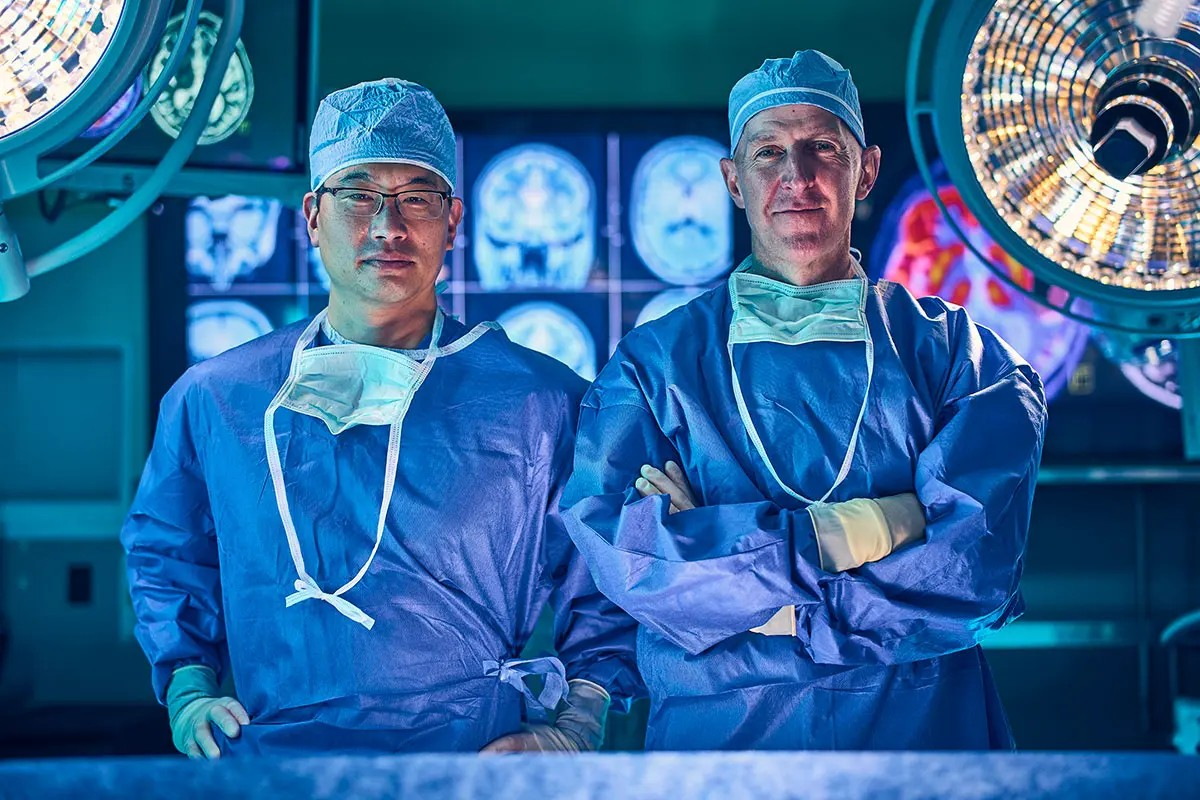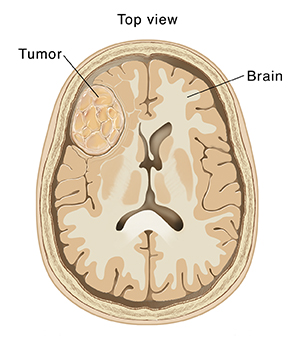Brain Tumors
Finding out you have a brain tumor can be overwhelming. Any growth in the brain has the potential to interfere with basic functions and affect your quality of life. Our team of compassionate experts work together to find an effective brain tumor treatment plan and help you achieve the best possible outcome.
Why choose us for brain tumor care?
BJC HealthCare works with WashU Medicine Physicians at The Brain Tumor Center at Siteman to deliver extraordinary care. We are the largest multidisciplinary center in the region for treatment of benign and malignant tumors of the brain, skull and pituitary region with care provided by an internationally recognized team of experts. Trust our track record of excellence to help improve your quality of life. From smaller incisions and shorter recovery times to advanced imaging techniques, our brain tumor patients benefit from our deep experience.
We offer:
- Recognized expertise: The Siteman Cancer Center is the only National Cancer Institute-designated Comprehensive Cancer Center in Missouri. We rank among the top cancer facilities in the nation with U.S. News & World Report.
- Research focus: Our researchers’ efforts lead directly to advancements in brain and spinal tumor treatment. We develop new therapies and offer you access to clinical trials.
- Team-based care: Our team of oncologists, neurosurgeons, and other experts work together to come up with the most effective care plan for you. You benefit from the expertise of multiple specialists.
- Groundbreaking treatments: Siteman has long been recognized for being on the leading edge of discoveries for the treatment of a wide range of tumors, from being the first in Missouri to offer the Gamma Knife, a highly effective radiation tool that targets brain tumors, to leading the way nationally with hyperthermia treatment to reduce trauma and recovery time. Building on this legacy, WashU Medicine researchers are now advancing personalized care through the development of genetic testing tailored to the individual brain tumor.
- Advanced tools: Magnetic resonance imaging (MRI) is a powerful tool that allows neurosurgeons to differentiate between healthy and diseased brain tissue. Our neurosurgeons use intraoperative MRI during surgery so they can more completely remove tumors the first time. We have the most experience with high-field-strength movable intraoperative MRI of any hospital in the United States.
- Pituitary tumor treatment: Our Pituitary Tumor Center was the first multispecialty center in the region focused exclusively on diagnosing and treating pituitary tumors. We offer a range of innovative treatments designed to remove tumors safely while sparing surrounding healthy tissue.

The Siteman approach to brain tumors
Our brain tumor and spinal tumor treatment team provides state-of-the-art diagnostic and treatment strategies for patients with newly diagnosed or recurrent tumors.
Brain Tumors
What is a brain tumor?
A brain tumor is a mass of abnormal cells in the brain. There are many types of brain tumors. They may start in the brain (primary tumors) or travel to the brain from another part of the body (metastatic tumors). Brain tumors may be slow growing, not likely to spread, and not cancer (benign). Or they may be quick growing, cancer (malignant), and able to spread to other parts of the brain. Both kinds of brain tumors, benign and malignant, can cause serious problems by pressing on and damaging normal brain tissue. Symptoms will depend on the type of tumor, how big it is, and where it is in the brain.
What causes symptoms?
Brain tumors can cause many different symptoms. Things such as where the tumor is and how fast it grows (aggressiveness) are important. A tumor can cause symptoms in a variety of ways. These include:
- Destroy normal brain.
- Compress normal brain.
- Cause swelling of the brain.
- Increase pressure in the head (intracranial pressure).
- Cause abnormal electrical activity in the brain (epilepsy).
- Cause bleeding in the brain (intracranial hemorrhage).
- Cause hydrocephalus by blocking the normal flow of cerebrospinal fluid (CSF). CSF is a clear fluid that bathes, supports, and cushions the brain and spinal cord.
What are the symptoms?
The most common symptoms of brain tumors are:
- Headaches that may be worse in the morning or with activity.
- Trouble thinking, remembering, or talking.
- Changes in personality, mood, and behavior.
- Vision, speech, or hearing problems.
- Seizures or convulsions.
- Paralysis, numbness, or weakness in one part or on one side of the body.
- Loss of balance, lack of coordination, or problems walking.
- Nausea and vomiting that may be worse in the morning.
- Hormone problems (many types).
- Drowsiness.
There are many different types of brain tumors with many different symptoms, treatments, and outcomes. Contact your health care provider if you have any questions about your symptoms and if they could be a sign of a brain tumor.
Search for a brain tumor specialist
Our highly trained team of specialists offers advanced treatments as well as compassionate, personalized care.
Diagnosing brain tumors
When your doctor suspects a possible brain tumor, they’ll use several tools to figure out how big the tumor is, whether it’s cancerous, and if you have tumors in other parts of your body. The answers to all these questions help us create an effective treatment plan.
Your diagnosis may include:
Brain tumor treatment
Your brain tumor treatment plan varies depending on several factors, including how much the tumor has spread and how fast it is growing. We use a range of advanced treatment options, including emerging therapies for tumors that historically were inoperable.
Your treatment may include:
Locations near you.
Explore nearby locations offering expert care.
